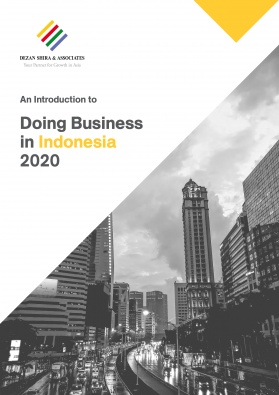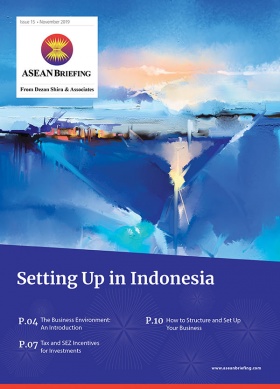Indonesia’s COVID-19 Immigration Measures: Latest Updates
- Indonesia issued new health protocols for international arrivals at all its ports of entry, requiring everyone to undergo PCR testing and quarantine in government facilities.
- Visitors who bring a negative COVID-19 PCR certificate from their country of origin can continue their journey and self-quarantine at their place of residence.
- There will also be an interview and other additional health checks at the port of entry.
On May 22, 2020, Indonesia’s Ministry of Health issued Regulation PM.03.01/Menkes/338/2020 (PM 338 of 2020), which implements new health protocols for Indonesians or foreigners entering Indonesia.
Under this latest regulation, any overseas entries will have to undertake a Polymerase Chain Reaction (PCR) test for COVID-19 in a government-designated quarantine facility, unless the traveler has a PCR test certificate stating they are COVID-19 negative at least seven days within the date of arrival.Previously, anyone entering the country only needed to present the health certificate stating they were not infected with the virus and were able to proceed with self-quarantine in their final destination. However, between March and May 2020, more than 100,000 Indonesians had arrived in the country, the majority are migrant workers who lost their jobs due to the pandemic. Of those, 591 had tested positive for the virus, prompting the government to implement stricter health protocols at its borders.
Who can enter Indonesia?
Indonesian citizens are still able to return and there still an entry-ban in place for non-Indonesians as per the Director General of Immigration Circular Letter No. IMI-GR.01.01-2493 of 2020.
Non-Indonesians who are eligible to enter the country must belong to the following categories:
- Is a diplomatic visa holder;
- Hold permanent residency permit or limited residency permit;
- Holds a service visa – service visas are given to individuals on assignment to Indonesia for non-diplomatic purposes;
- Hold diplomatic visa residency permits or service residency permits;
- Employees working on strategic national projects;
- Are transport crew (air, land, and sea); and
- Are engaged in medical, food, and humanitarian work.
The aforementioned visitors must also not have come from a COVID-19 affected country within the last 14 days from their date of arrival to Indonesia.
What are the new health protocols?
Upon arrival at one of the country’s international ports (airports and seaports), the traveler will be asked to present their health certificate, issued in English, from a health authority of their country of origin.
If the health certificate does not contain a COVID-19 PCR test, with a negative result, health officials will conduct a rapid test at the port. There will also be a short interview and additional health checks, such as temperature, oxygen saturation, and observations of any symptoms of the virus.
What if the rapid test is reactive?
If the rapid test is reactive, the traveler will be taken to one of the COVID-19 referral hospitals or to the Wisma Atlet hospital to undergo a PCR test and quarantine.
What if the rapid test is non-reactive?
If the rapid test is non-reactive, the traveler will be taken to a government quarantine facility, where they will undergo a PCR test. If the results are negative, health officials can opt to do further tests to rule out false-positive results.
Travelers who are found to have the virus after the PCR testing will be transferred to a COVID-19 referral hospital.
Once a traveler has been given permission to leave, they will be issued with a special clearance letter, which can be used as a pass if their destination is under lockdown measures. The traveler is then expected to continue their 14-day quarantine at home.
The traveler is obligated to notify their local medical clinic that they are undergoing quarantine at their place of residence.
What if the health certificate contains a negative PCR test result?
Travelers who enter the country with a negative COVID-19 PCR certificate will be allowed to undergo self-quarantine at their final destination.
The certificate will be evaluated by health officials at the port, and it must be valid at least seven days within the date of arrival.
After, the traveler will also undergo an interview and additional health examinations in the form of temperature checks, inspecting oxygen saturation levels, and observations of any symptoms.
Once the PCR certificate has been validated and the traveler has passed the health check, they will be given the clearance letter to continue with their travels.
Foreign visitors should be aware that the regulations are subject to change and they must fulfil at least one of the immigration categories upon entry into Indonesia. More information can be found by contacting the nearest Indonesian embassy.
About Us
ASEAN Briefing is produced by Dezan Shira & Associates. The firm assists foreign investors throughout Asia and maintains offices throughout ASEAN, including in Singapore, Hanoi, Ho Chi Minh City and Jakarta. Please contact us at asia@dezshira.com or visit our website at www.dezshira.com.
- Previous Article Das Steuersystem in Singapur
- Next Article Indonesia Issues Safety Guidelines for Businesses Post Lockdown







